Campus News
Hybrid Alumni Week festivities highlight Slug ingenuity, camaraderie, and social consciousness
Drones soared in the sky, familiar places and faces were rediscovered, cocktail glasses clinked, and old friendships were renewed during the hybrid Alumni Week festivities, which blended analog fun with virtual symposiums.
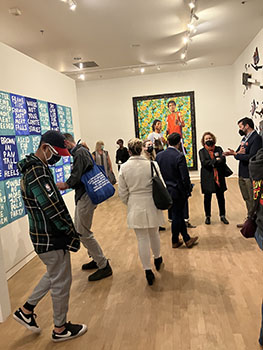

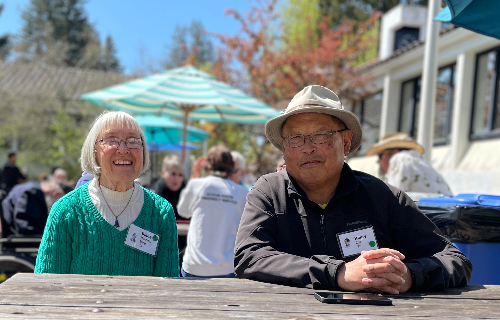
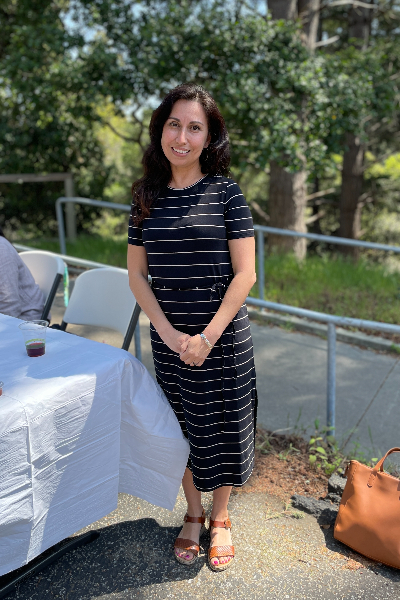
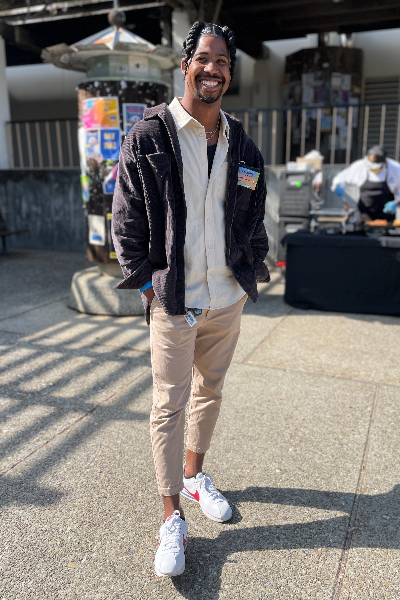
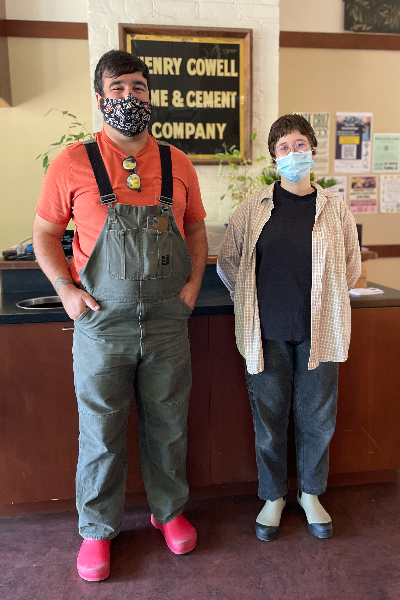
Drones soared in the sky, familiar places and faces were rediscovered, cocktail glasses clinked, and old friendships were renewed during the hybrid Alumni Week 2022 festivities, which blended analog fun with virtual symposiums.
Due to the COVID-19 pandemic, the previous two editions of Alumni Week were mostly virtual, but this one included many opportunities to meet and greet in person, including a gala kickoff event for alumni in downtown Santa Cruz at the Museum of Art & History (MAH).
Keeping up with COVID
Slugs pride themselves on their blend of excellence and social consciousness. That combination was very much in evidence at a virtual University Forum on Tuesday highlighting the work of three alumni of UCSC’s prestigious Science Communication Program who cover the COVID-19 pandemic. The panelists, Julia Calderone (’14 SciCom), Nicholas St. Fleur (’14 SciCom), and Nsikan Agpan (’14 SciCom), who was named in January 2021 as health and science editor at WNYC public radio in New York, addressed the challenge of covering a crisis that also affects them personally.
Calderone, a staff editor at the New York Times, was among a large team of reporters and editors honored on June 11 with the 2021 Pulitzer Prize for Public Service. The award, regarded as the most prestigious of the annual Pulitzer Prizes in journalism, recognized a deep package of 15 stories and data-analysis displays about the coronavirus pandemic assembled in 2020 by the New York Times.
Calderone was tapped to work on the New York Times’s COVID tracking project in spring of 2020.
“I don’t think it would be an exaggeration to say that those were some of the darkest and most humbling and rewarding moments of my life,” said Calderone.
Considering climate change
The Confronting Climate Change Conference on Thursday brought together scientists, artists, policy experts, and community members to discuss the planet’s wellbeing and share solutions for the future.
The conference kicked off with panelist presentations about how climate change is affecting the Santa Cruz County community through sea level rise, storm intensity, water supply, fishery health, and food production.
Katherine Seto, assistant professor of environmental studies, spoke of the complex ways that climate change can impact fisheries across the globe. Small Pacific Island states have economies that depend on their commercial fisheries, but warming waters have driven many tuna to migrate toward open waters, away from island jurisdiction, Seto said.
As a result of that migration, places like Santa Cruz are expected to see an increase in tuna stocks.
“But when that happens, those small island nations will no longer be entitled to the revenue, which in some cases is 84 percent of their total government revenue. Things like hospitals, education, and roads, will no longer have the support they need.
“So when we think about climate change, a lot of times it’s easy to think about the direct effects, right?” Seto said. “What’s harder to think about are the indirect and the more complex things like ocean acidification or salt water intrusion, or increasing storm frequency and intensity.”
The panel also included Borja Reguero, associate researcher, Institute of Marine Sciences at UCSC; Sherry Flumerfelt of Monterey Bay Fisheries Trust; and Valentin Lopez, chairman of the Amah Mutsun Tribal Band.
‘Art can be a bridge’
Slugs took their time Friday evening enjoying the exhibit Strange Weather, which brings together artworks from the collection of Jordan Schnitzer and his Family Foundation, illuminating and reframing the boundaries of bodies and the environment, with works from renowned contemporary artists.
The exhibit, which runs through August 14, is curated by Rachel Nelson, director of the Institute of the Arts and Sciences, in collaboration with Jennifer González, professor of history of art and visual culture. The exhibition is organized by the Institute of the Arts and Sciences and the Santa Cruz Museum of Art & History.
Celine Parreñas Shimizu, dean of the Division of Arts at UCSC, encouraged attendees to lose themselves in the artworks.
“You will be frozen in your feet because your mind will be blown,’’ she said, emphasizing that Strange Weather is available to UCSC faculty, staff, and students for no charge.
Addressing the crowd at the kick-off event for the weekend, UCSC Chancellor Cynthia Larive said the MAH exhibit was a great way to begin the Saturday and Sunday festivities at Alumni Week.
“This is a great place to come together and think about campus and community collaborations.
“Art can act as a bridge,” she continued. “The arts really bring the soul to UC Santa Cruz, especially since Dean Celine joined us.”
A fresh look at campus
While most of the activities were earthbound on the weekend of Alumni Week, some Slugs enjoyed breaking free of gravity with some high-flying drones at the Drone Flying Demonstration. A group of alumni had a blast learning how to fly the buzzing, remote-controlled devices from FAA-licensed undergrads working in the CIDER (CITRIS Initiative for Drone Education and Research) program on campus.
Some stopped by for fun, and others because they’re thinking about a career change and see the many applications for drone work as a major opportunity. A prospective UCSC robotics student and his father came by and ended up staying for more than an hour. In fact, they were so taken with the drone demonstration that it sealed the deal: The young man is coming to UCSC.
At Crown College, UCSC Foundation Trustee Henry Chu (Crown ’72, history) and Diane (Pearson) Elliot (Crown ’73, biology) were attending the Crown College 50th reunion, which featured a conversation around the theme of “Who we are and who we became.”
Asked why he attended the event, Chu said, “A lot of my identity is wrapped around Crown College and UCSC, and a lot of my good friends are from here. There are five of us who hang out together quite frequently, and one of them was the organizer.”
He added that he’s also been involved with Crown College as a trustee, and part of the event was intended to encourage alumni to think about the future—especially Crown’s—and consider making gifts.
Elliot—who met her husband, Robert Elliott (Crown ’72, psychology), at orientation during their first week of college—heard about the 50th reunion through Robert’s college roommate, Mark Alexander (Crown ’74, information sciences).
“We decided it would be kind of fun to come back and see things again,” Elliot said. “I don’t know what I expected, but it’s been really interesting to see where people have gone in the last 50 years.”
Alumni reconnecting, changing the world
At Cowell Coffee Shop’s Saturday event, Cultivating Food Access and Student Success, Cowell Coffee Shop Supervisor Brooks Schmitt (Porter ’12, classical studies and world literature) explained how the café employs 13 students and 30 interns, and serves 200–300 students a day with free, nutritious food in part through the University of California’s Basic Needs Initiative.
“We’re trying to create this visualization of what the food system is and how students fit into it, and then also address food security at the same time,” Schmitt said, adding that 80 percent of the café’s produce comes from the campus Farm, with the other 20 percent coming from the farmer’s market.
Cynthia Hernandez-DeLuca (Oakes ’99, molecular, cellular and developmental biology) of Milpitas made it to Alumni Week for the first time this year and was attending the Latin American and Latino Studies Alumni Gathering—she had been interested in Latin American and Latino studies as a student but didn’t get much of a chance to explore it—and then planned to head to the Oakes College Welcome Back BBQ to see if she ran into old friends and acquaintances, and to possibly network.
As Saturday’s dynamic list of events wrapped up, Sterling Scott (Rachel Carson ’17, molecular, cellular and developmental biology) was getting a chance to unwind at the Cheers to 30 Years! Alumni Reception & Reunion on the Cowell courtyard. Scott, who was part of the founding class of Focus on Africa (FOA), was invited by FOA’s leadership to speak at the group’s event, Merrill College: Focus on Africa Reunion, earlier in the day.
“They wanted me to be back and speak on my experience and how it’s changed my life. It really opened my eyes and changed my perspectives on a lot of things and how I see the world and interpret what we go through, and it’s opened so many doors,” Scott said. “I’m hoping to continue opening those doors for other UCSC students to get involved with the global classroom.”